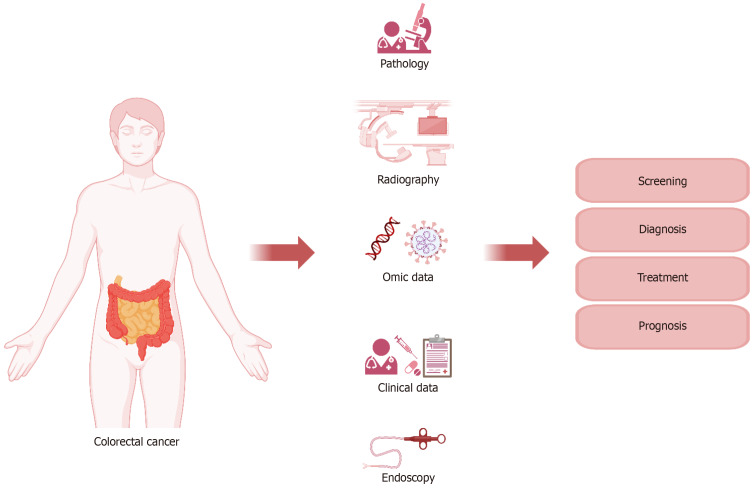Figure 4.
Role of personalized medicine and molecular imaging in colorectal cancers. The function and role of molecular imaging and personalized medicine in charge of management of colorectal cancers is shown schematically in the picture, and the possibility of playing the role of these two concepts does not have any special priority or delay and can be simultaneous and parallel. The role of these two concepts is to adopt the most accurate, appropriate, and personalized mode for patients with colorectal cancers, including the basic steps of collecting individual demographic information of patients, collecting human samples, including blood, urine, and biopsy samples etc, and examination and analysis, screening, in the diagnostic path using common and novel imaging and anatomical laboratory methods and even at the cellular and molecular level, determining the most suitable and targeted treatment method including various medical methods (drugs, type and amount), and types of surgical methods, radiation therapy or combined methods, determining the rate of response to treatment, recurrence, prognosis and follow-up of patients according to the characteristics of each patient. Imaging modalities including positron emission tomography (PET), 18F-fluorodeoxyglucose (FDG) PET, FDG-PETPET, 68[Ga]Ga-DOTA-fibroblast activation protein inhibitor (FAPI)-04 PET/computed tomography (CT), 68Ga-FAPI PET/CT, magnetic resonance imaging (MRI), including dynamic contrast-enhanced imaging (DCE) MRI and CT perfusion imaging in determining the course diagnosis, prognosis and FDG-PET/CT, 18F-FDG PET/CT, 68Ga-FAPI PET/CT, and DCE-MRI in treatment.

